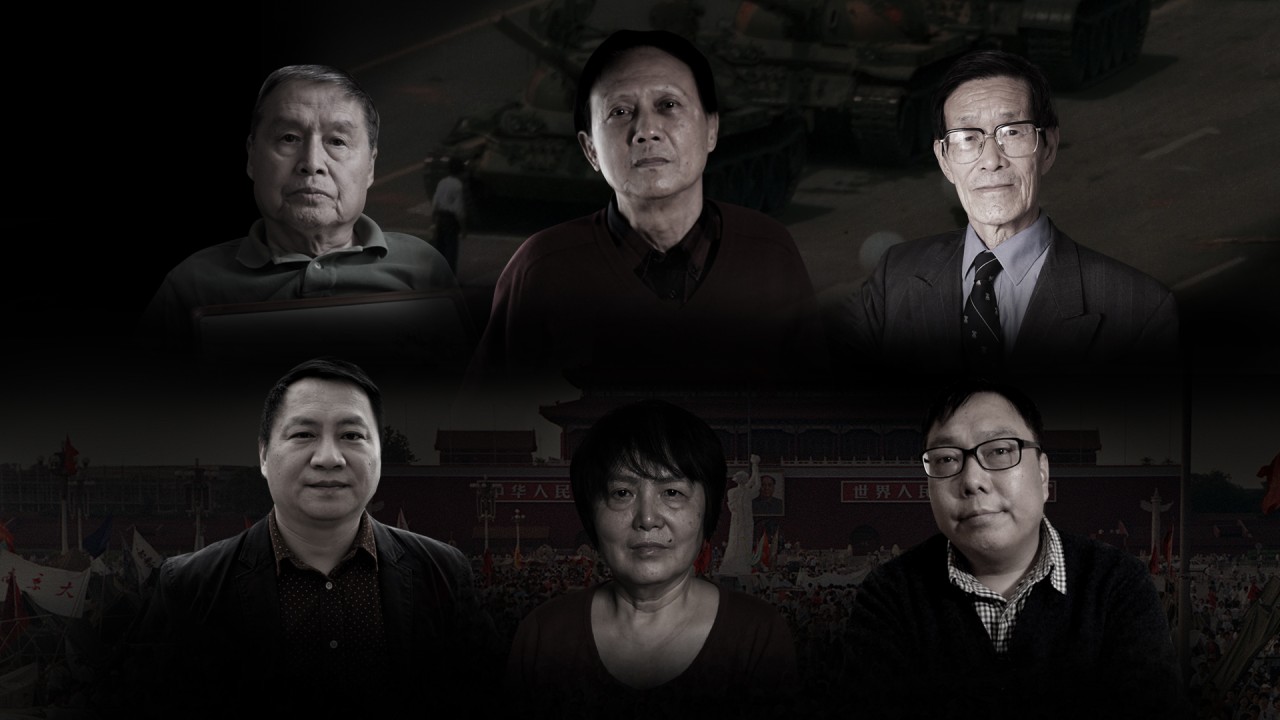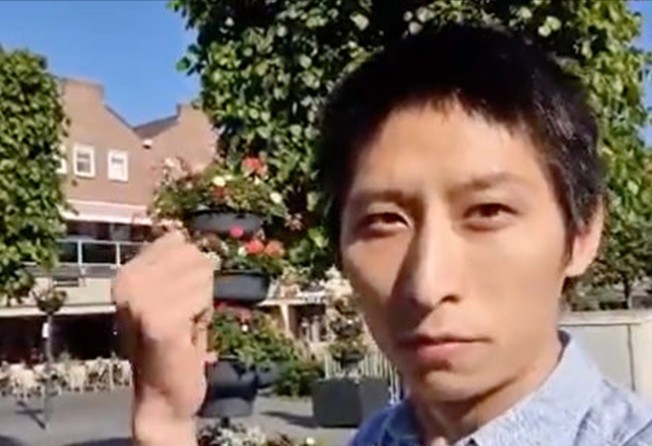
14:58
30 years after the Tiananmen Square crackdown, dissidents in China and in exile speak to why the wounds still haven’t been healed

A Chinese human rights activist facing imminent deportation from Germany to China has won a stay, after authorities granted him an appeal against a rejected application for political asylum.
Liu Bing was set to be deported to China next Thursday, where he claimed that he would “definitely face long-term detention without trial” for taking part in political protests before he fled the country.
But lawyers who recently began working on his behalf secured an adjournment in his exit on Wednesday, meaning Liu will be free to leave the detention centre where he is being held in the North Rhine-Westphalia region on Tuesday, while his appeal is heard.
Reached by phone in his single room at the detention centre, where he is equipped with a refrigerator, television and cooker, Liu confirmed he took part in protests in China, including those commemorating the Tiananmen Square crackdown in 1989.

14:58
30 years after the Tiananmen Square crackdown, dissidents in China and in exile speak to why the wounds still haven’t been healed
“If I am sent back to China, I will definitely face long-term detention without trial, because this kind of thing is very common in China. They don’t need the police, and I don’t need any court decision, they can treat a person at will. I will be detained,” he said.
Liu said he is in a “terrified state”, and that his “family members [in China] may not understand or support my participation in political activities”.
“After all, they are family members – they just want to feel that you are safe and healthy. They want you to stay away from these dangerous things, and the further away from political activities you are, the better,” Liu said.
Liu was active in dissident groups in China for almost a decade, including the Open Constitution Institute, a protest movement calling for the rule of law in China.
He fled China after being pictured taking part in a meeting with other political activists in Xiamen in May 2019.
It has been reported that other dissidents involved in the Xiamen meeting – including Ding Jiaxi, Xu Zhiyong and Dai Zhenya – were arrested in the subsequent months.
After leaving China, Liu first went to Thailand, then Serbia, before finally arriving in Germany, where he was initially held in a refugee camp in Frankfurt, before being released to begin an application for political asylum.
After his application was rejected, he fled once more to the Netherlands, where he again tried to gain political asylum. However, he was arrested in June for breaching the EU’s Dublin Regulation, which states that if a person’s asylum application is rejected in one EU country, they cannot apply in another, and was sent back to Germany where he has remained in detention since.
Campaigners working with Liu have said that his lack of understanding of the German legal system and language meant he did not initially realise that an appeal was possible – nor was he aware of a process by which an asylum seeker could request the process be restarted. Both clauses have now been triggered.
“For the first case, he didn’t have a lawyer, he didn’t ask for one. He’s from China, where many people don’t have a strong concept of the legal system or the rule of law,” said a spokesperson for the International Society for Human Rights, which is working with Liu.
His case has been promoted by a number of high-profile German politicians, including MEP Reinhard Buetikofer, who took to Twitter to say: “Germany must stop deportation of Chinese activist Liu Bing.”
William Nee, research and advocacy coordinator for the Chinese Human Rights Defenders, an NGO, said it would be a “tragedy” for Liu to be deported.
“He faces an almost certain fate of immediate detention, followed by torturous interrogations and a sham trial. The German authorities must put a stop to this right now,” Nee said.
A spokeswoman for the German Federal Office for Migration and Refugees said that “for privacy and data protection reasons, we do not comment on individual cases within the asylum procedure in general”.
Data from the UN High Commissioner for Refugees showed that between 2012 – when Xi Jinping became the general secretary of the Communist Party – and 2020, the number of asylum seekers from China rose by 602 per cent, from 15,362 to 107,864.

01:43
First person convicted under Hong Kong’s national security law jailed for 9 years
In Europe, the first instances of Hongkongers seeking political asylum have also been trickling in over the past year. In October, Germany granted refugee status to an unnamed Hong Kong woman who fled following the roll-out of the national security law, having participated in anti-government protests in the city.
In Sweden, Narayan Liu, a Hong Kong journalist and activist, has applied for asylum having had his residency revoked, claiming that if he is forced to return to the city he could be detained under the national security law. Liu moved to Sweden eight years ago on a temporary residence permit, an extension to which has now been denied.
An appeals process “could take years” and will require leaving Sweden, with Liu unclear as to which third country he could stay for longer than six months without having to return to Hong Kong, where he is sure his political activities have been noted.
“Since July 2020, I have served as the president of Befria Hongkong. Most of the current members have been organising demonstrations, webinars, and other events since September 2019.
“Virtually all of our activities here – thanks to Hong Kong’s national security law, which passed in June 2020 – are criminal acts in the eyes of Chinese and Hong Kong authorities: inciting secession, subversion of the national security law, colluding with foreign powers, even terrorism,” Liu said.
Additional reporting by Cissy Zhou